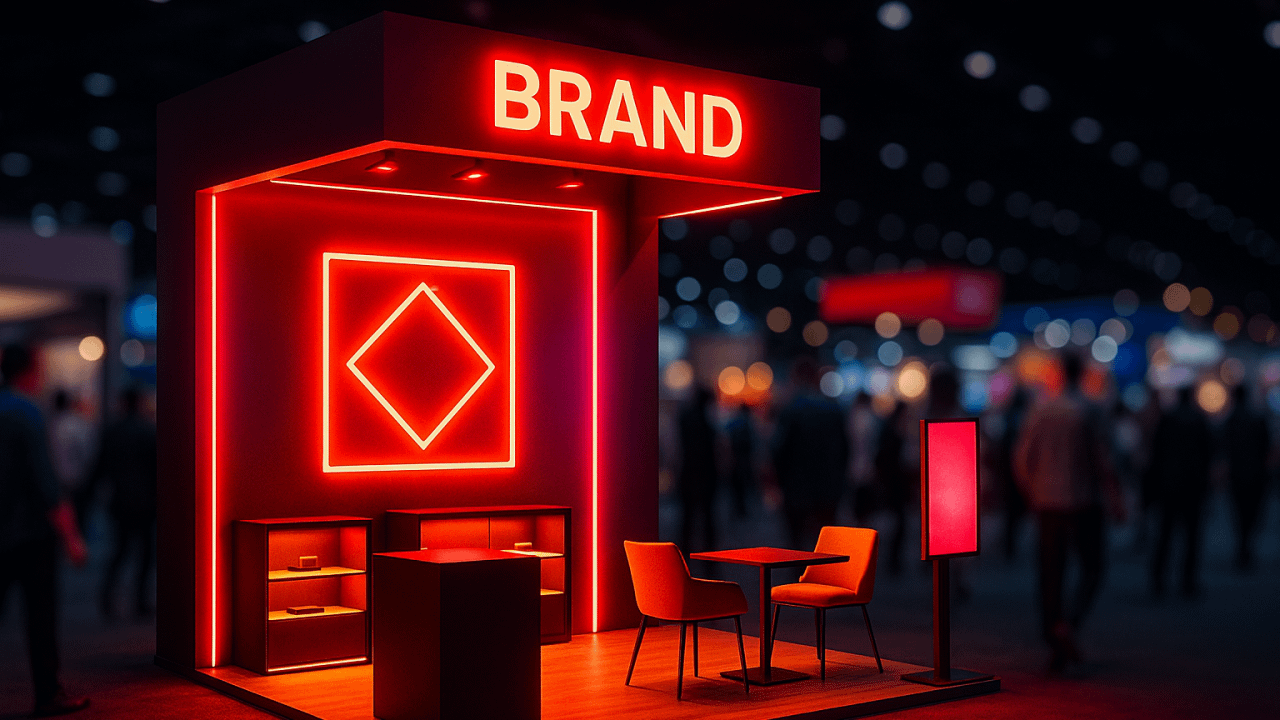

We’ve covered how lighting attracts traffic and the setups that get noticed. But lighting isn’t just about visibility; it’s about vibe.
Your lighting communicates who you are before anyone steps foot in your booth. That’s why aligning your lighting choices with your brand identity is essential.
What Does Your Brand Feel Like?
Ask yourself:
- Are we bold or understated?
- High-tech or down-to-earth?
- Inviting or exclusive?
- Calm or high-energy?
Once you define your brand’s mood, lighting becomes a tool to reinforce that message, subconsciously shaping how visitors experience your space.
Match the Mood: Lighting Styles by Brand Personality
Innovative & Tech-Forward
Use cool-toned whites, clean accent lighting, and subtle color shifts. LED panels or light strips along geometric edges reinforce a futuristic feel. Industries: SaaS, electronics, cybersecurity.
Relaxed & Welcoming
Choose warm lighting with soft diffusion. Think of how a boutique hotel lobby feels, not too dim or clinical. Add glows around lounge areas or product displays. Industries: wellness, lifestyle, hospitality.
Bold & Energetic
Incorporate bright colors, high contrast, and even movement. Use lighting that syncs with sound or video content to keep the energy flowing. Industries: entertainment, sports, youth brands.
Sophisticated & Premium
Color psychology plays a huge role in booth perception. Here’s a quick reference:
- Blue = trust, calm, professionalism
- Red = energy, urgency, attention
- Green = health, sustainability, balance
- Purple = creativity, luxury, innovation
- White = simplicity, clarity, focus
Don’t feel you must go overboard with color; even subtle hints can reinforce your message.
Quick Mood-Matching Tips
- Choose 1–2 dominant light colors that match your palette
- Test your lighting against booth graphics in advance
- Sync lighting tone with furniture and flooring to maintain harmony
- Use contrast to highlight, not overwhelm
Bottom line: The way your booth feels can make as much of an impression as what it says. Lighting is a design language, and tone is its grammar.
Up next in Part 4: Like a pro, we’ll dive into how to layer your lighting to create depth, flow, and better visitor experiences.
 How Can We Help?
How Can We Help?












